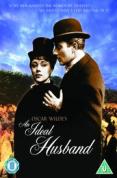![A Night To Remember [1958]](/pictures/1013409.jpg) A Night To Remember | DVD | (19/06/2007)
from £6.29
| Saving you £13.70 (217.81%)
| RRP
A Night To Remember | DVD | (19/06/2007)
from £6.29
| Saving you £13.70 (217.81%)
| RRP Two years after 20th Century Fox released its melodramatic disaster film Titanic in 1953, Walter Lord's meticulously researched book A Night to Remember surprised its publishers by becoming a phenomenal bestseller. Lord had an intuition that readers craved the reality of the Titanic disaster and not the romantically mythologised translations (like Fox's film, starring Barbara Stanwyck), which relied on fictional characters to "enhance" the world's worst maritime disaster. Lord's book proved that the truth was far more compelling than fiction, outlining the many "if onlys" (if only the iceberg had been spotted a few minutes earlier, etc.) that lent sombre irony to the loss of 1,500 Titanic passengers. Three years after Lord's book appeared, it was brought to the screen with the kind of riveting authenticity that Lord had insisted upon in his own research. The 1958 British production of A Night to Remember remains a definitive dramatization of the disaster, adhering to the known facts of the time and achieving a documentary-like immediacy that matches (and in some ways surpasses) the James Cameron epic released 39 years later. The film erroneously perpetuates the once-common belief that the Titanic sunk in one piece (instead of breaking in half as its bow began to plunge), but many other misconceptions are accurately corrected, and the intelligent screenplay by thriller master Eric Ambler is a model of factual suspense. By making Titanic the star of the film, director Roy Baker emphasises the excessive confidence of the booming industrial age and creates an intense you-are-there realism that pays tribute to Walter Lord's tenacious quest for truth. --Jeff Shannon
![Meet Mr Callaghan [DVD]](/pictures/1096610.jpg) Meet Mr Callaghan | DVD | (21/09/2009)
from £N/A
| Saving you £N/A (N/A%)
| RRP
Meet Mr Callaghan | DVD | (21/09/2009)
from £N/A
| Saving you £N/A (N/A%)
| RRP Cynthis (Harriette Johns) hires private eye Slim Callaghan (Derrick de Marney) when her uncle changes his will in her favour...she says. When slim finds out her uncle is already dead he switches his suspicions from the former three beneficiaries to Cynthis herself - but finally tags Cynthis''s fianc'' (Rober Adair) as the killer...
 An Ideal Husband | DVD | (06/02/2006)
from £N/A
| Saving you £N/A (N/A%)
| RRP
An Ideal Husband | DVD | (06/02/2006)
from £N/A
| Saving you £N/A (N/A%)
| RRP If we men married the women we deserved...We should have a very bad time of it. 1890s high society provides the setting for Oscar Wilde's sparkling comedy of morals and manners in which an 'ideal' husband must fight to save both his marriage and reputation when a blackmailing adventures threatens him with a political scandal.

Please wait. Loading...
This site uses cookies.
More details in our privacy policy